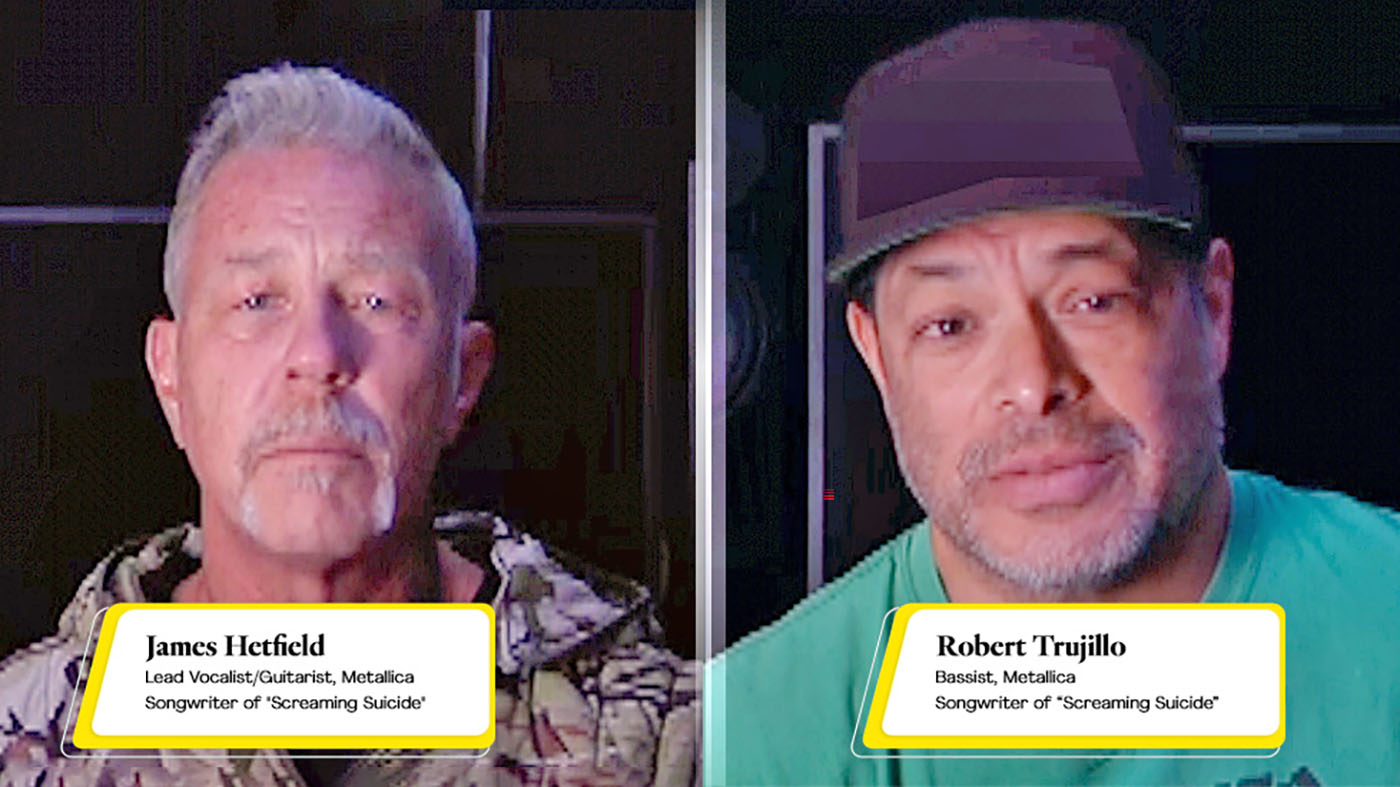Whether you’re a fan of their music or not, you’ve likely heard of the band Metallica. They pushed their way into the public consciousness in 1981 and gradually broadened globally with their characteristically fast tempo and thought-provoking lyrics. Forty-two years on, they continue to regularly sell out major amphitheater and stadium concerts during their worldwide tours.
I count myself as a fan. Several months ago, I was at the gym when I received a Spotify notification that a playlist “favorite” of mine had just dropped a new single from the band’s 11th studio album, “72 Seasons.” I pressed “play” and was whisked into a song entitled, “Screaming Suicide.”
The song portrays an intense internal conflict with the protagonist’s self-worth constantly being questioned. The lyrics paint a vivid picture of a battle with personal demons, self-esteem issues, insecurities and the temptation of self-destructive thoughts. It cleverly captures many of the risk factors and components of current theory of why some people die by suicide.
Not only does the song convey what someone might be feeling during a crisis, the lyrics also express the importance of holding onto hope and coming out on the other side, safe and alive. For many people with experience of suicide attempts or those struggling with thoughts of suicide, hearing these experiences reflected in music, movies, books or other forms of storytelling can provide catharsis.
Storytelling eliminates stigma
This type of storytelling helps to eliminate stigma or discrimination felt by those who have lived through them and provides hope for those still struggling. It encourages people to talk about it, reach out and find support when they’re thinking about suicide.
I saw a perfect melding of the perspective on suicide prevention offered within “Screaming Suicide” and our “Don’t Wait. Reach Out.” campaign.
Would Metallica entertain a collaboration if we reached out to them?
One call, then another. We learned that Metallica was possibly interested in working with VA Suicide Prevention to develop Veteran-specific messaging leveraging their celebrity and the momentum of their single.
Metallica, through their representative, expressed a serious commitment to preventing Veteran suicide and was happy to offer their support.
PSA aired last September
We worked with our amazing partners at the Ad Council to develop this messaging in a clear and effective way. The Ad Council’s top-notch production team worked with clips from Metallica lead guitarist James Hetfield and bassist Rob Trujillo to craft a new public service announcement providing education about risk factors for suicide. It was ready last September.
You can view the final PSA here.
It encourages Veterans to call the Veterans Crisis Line (Dial 988 then Press 1) if they were in crisis or to visit the Don’t Wait. Reach Out. website to access hundreds of resources for many of life’s challenges.
As a huge fan of the band, this was all very exciting, to say the least. This type of collaboration is exactly what we mean when we say, “Suicide is preventable and everyone has a role to play.”
This messaging and the PSA exemplify the public health approach to preventing Veteran suicide, working from multiple angles and meeting people where they are with messages that resonate with them.
Because suicide is often the confluence of many factors, VA’s efforts in Veteran suicide prevention are wide-reaching and are happening every day.
We learned shortly after the PSA’s creation that the band would be sharing the message throughout their stateside tour. Marie Dyak, president and CEO of the Entertainment Industries Council and an instrumental part of this collaboration, was lucky enough to attend one of their concerts last fall and shared, “They aired the PSA and then at a peak moment of the concert, James, in his strong embracing voice sang, ‘You are not alone!’ to the cheers of 65,000 Metallica fans. ‘You are not alone!’ The sense of community was empowering and overwhelming.”
Not only is Metallica sharing poignant, hopeful content with their fans through their lyrics they are also spreading the word about the Veterans Crisis Line and “Don’t Wait Reach Out” across the country. Fans attending tour venues nationwide have been hearing about VA resources from their idols.
Topics in this story
Link Disclaimer
This page includes links to other websites outside our control and jurisdiction. VA is not responsible for the privacy practices or the content of non-VA Web sites. We encourage you to review the privacy policy or terms and conditions of those sites to fully understand what information is collected and how it is used.
More Stories
Bob Jesse Award celebrates the achievements of a VA employee and a team or department that exemplifies innovative practices within VA.
The Medical Foster Home program offers Veterans an alternative to nursing homes.
Watch the Under Secretary for Health and a panel of experts discuss VA Health Connect tele-emergency care.







What about fixing the VA? Maybe that will fix veteran suicide?
I have been with the VA since 1968 and it is constantly repairing itself. I am happy with all they have done for me and I think you are out on a limb by yourself.
Loved this artical/story regarding Metallica – my only problem is that I’m a disabled/retired (Nam era) veteran and certainly would like to attend their upcoming Minneapolis show this year BUT can’t afford tickets – Bummer!
The VA is the reason.
Don’t wait, Reach out! Rock on Metallica! I love seeing influential people help spread the message.